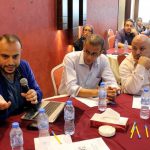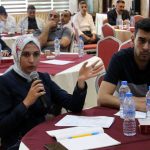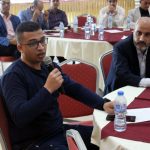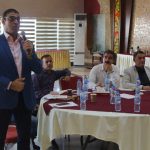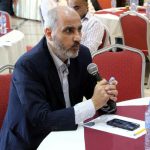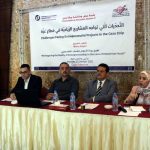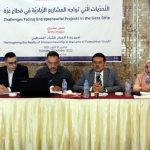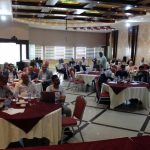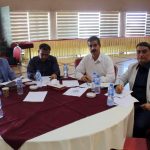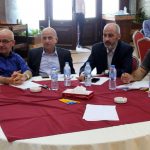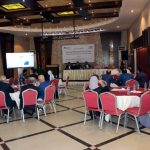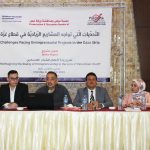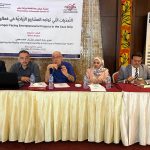As part of its work as an independent think tank that tirelessly produces knowledge, PalThink for Strategic Studies, in partnership with the Friedrich Naumann Foundation for Freedom, has held a panel session to discuss a research paper titled “Challenges Facing Entrepreneurial Projects in the Gaza Strip”, within the “Reimagining the Reality of Entrepreneurship in the Lens of Palestinian Youth” project, which aims to promote entrepreneurship among graduates in Gaza.
The session was moderated by PalThink’s Communication and Outreach Officer, Mahmoud Alnaouq, who welcomed the attendees and said that the paper comes within a series of research papers that address the challenges of entrepreneurial projects in the Gaza Strip.
For his part, PalThink’s director, Omar Shaaban, said: “Since its establishment, PalThink has been exercising its role in an independent and impartial manner, working with researchers and parties from all orientations. It also focuses on giving young people the opportunity to present themselves in the society.”
“Through the production of solid research papers that are presented to decision-makers and officials, PalThink addresses pressing matters in the Gaza Strip, especially when it comes to pioneering projects, which are vital to the growth of the blockaded area,” he said.
In turn, the author of the research paper, Mahmoud Issa, a development researcher, said that entrepreneurial projects have become a priority for young people in Gaza, considering the inability of the private and public sectors to absorb the workforce. And the unemployment rate reached 44.1%, and 74% among graduates between 19—29 years old.
Issa talked about the concept and the economic value of entrepreneurial work since they enable young people to play their social and productive role in society. He discussed the differences between entrepreneurial and small projects in terms of innovation, creativity, risk, expected income and product.
Entrepreneurial projects face many challenges in terms of the existing laws, financing difficulties, accessing to local and external markets, social and cultural challenges, the poor quality of university education, and weak government policies and plans that support entrepreneurs, he said.
Issa stressed the need for innovation and youth involvement, because it is “the only key to the development of society, and it is a responsibility borne by civil society, government and the private sector.”
Mazen Al-Ajla, Professor of Economics at Al-Azhar University, commented on the paper by saying that the challenges are greater than the achievements in terms of entrepreneurship in Gaza, and it has not contributed effectively to the economy so far due to the various challenges.
He pointed out that the main challenge facing entrepreneurship in Gaza is the weakness of the local market and purchasing power and the accumulated unresolved problems.
For her part, Walaa Hayek, project coordinator at the Society of Women Graduates, said that Gaza suffers constant conflict due to the Israeli occupation, and this affects all aspects of life of the population.
The environment is not conducive to the birth and encouragement of entrepreneurial projects, she said, questioning the role of the Ministry of Entrepreneurship and Empowerment in Gaza and to which extent it contributes to economic growth.
Interventions and questions from the audience revolved around the ways some entrepreneurs have taken to target foreign markets, the necessity of informing decision-makers of the outputs of these research papers, and the importance of reflecting on the results of implemented projects.
The attendees also talked about the government’s policies in terms of importing goods at the time there are local alternatives, correcting misconceptions about entrepreneurship, and the need for mentors to support entreneurs and freelancers.


